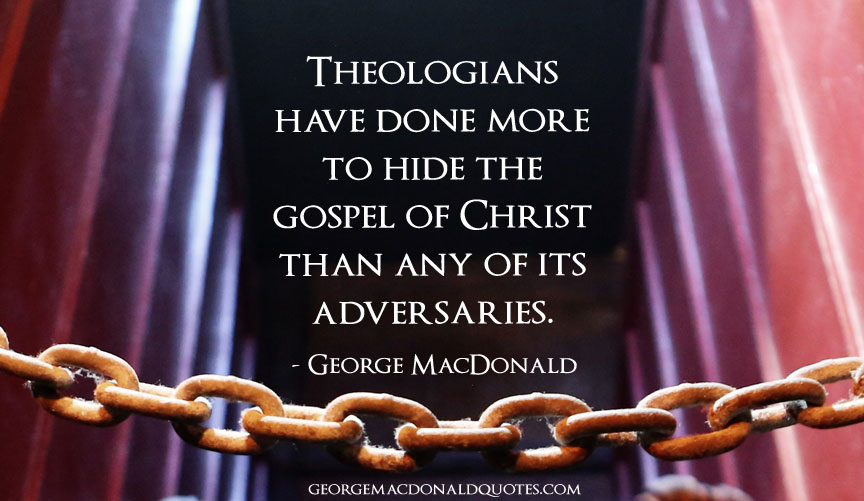[previous] [next]
 Download & Share
Download & Share
“There is a thing wonderful and admirable in the parables, not readily grasped, but specially indicated by the Lord himself—their unintelligibility to the mere intellect. They are addressed to the conscience and not to the intellect, to the will and not to the imagination. They are strong and direct but not definite. They are not meant to explain anything, but to rouse a man to the feeling, ‘I am not what I ought to be, I do not the thing I ought to do!’ Many maundering interpretations may be given by the wise, with plentiful loss of labour, while the child who uses them for the necessity of walking in the one path will constantly receive light from them. The greatest obscuration of the words of the Lord, as of all true teachers, comes from those who give themselves to interpret rather than do them. Theologians have done more to hide the gospel of Christ than any of its adversaries. It was not for our understandings, but our will, that Christ came. He who does that which he sees, shall understand; he who is set upon understanding rather than doing, shall go on stumbling and mistaking and speaking foolishness. He has not that in him which can understand that kind. The gospel itself, and in it the parables of the Truth, are to be understood only by those who walk by what they find. It is he that runneth that shall read, and no other. It is not intended by the speaker of the parables that any other should know intellectually what, known but intellectually, would be for his injury—what knowing intellectually he would imagine he had grasped, perhaps even appropriated. When the pilgrim of the truth comes on his journey to the region of the parable, he finds its interpretation. It is not a fruit or a jewel to be stored, but a well springing by the wayside.”
– George MacDonald from “The Last Farthing” in Unspoken Sermons.
 Download & Share
Download & Share
[previous] [next]
Get This Book In Audio
Get This Book In Digital Text & Print







Leave a Reply